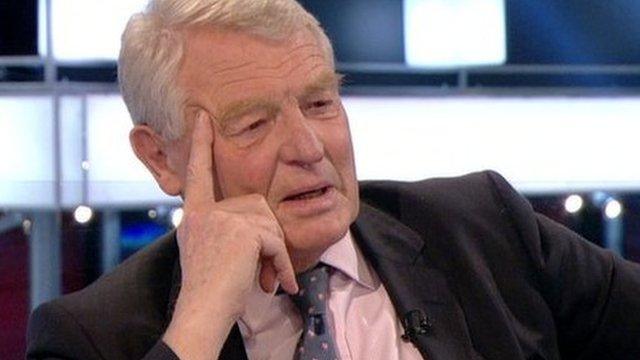Mrs Nuneaton: Who is she and how will Labour woo her back?
- Published
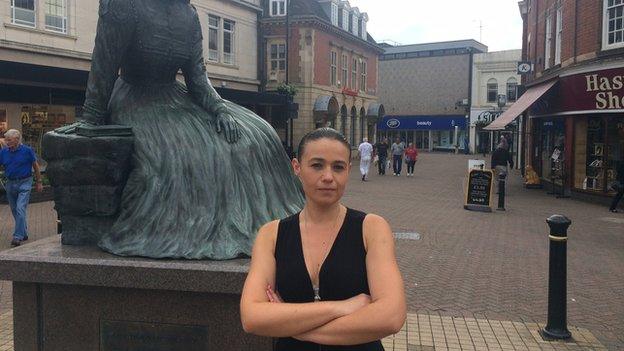
Carly French could be considered the typical Nuneaton resident
David Cameron said he knew he had won the election when the Tories managed to hold the key marginal seat of Nuneaton. So, with prospective Labour leader candidates due to hold a hustings in the Warwickshire town later, what will it take for Labour to win it back?
It was described as the Basildon moment of the 2015 election.
Nuneaton, won marginally by the Tories in 2010, was one of Ed Miliband's key targets at the election in May.
But the Conservatives did not just scupper his plan to win it back, they doubled their majority in the seat.
Now, as Labour sets out to build its recovery plan, it seems the Nuneaton voter is as important to the party as the Worcester woman, external was to Tony Blair in 1997.
But who is he and how do they win him back?
Well it's actually more likely to be a woman, according to the latest data.
The 2011 census revealed there were 46,291 women in the constituency compared with 44,795 men.
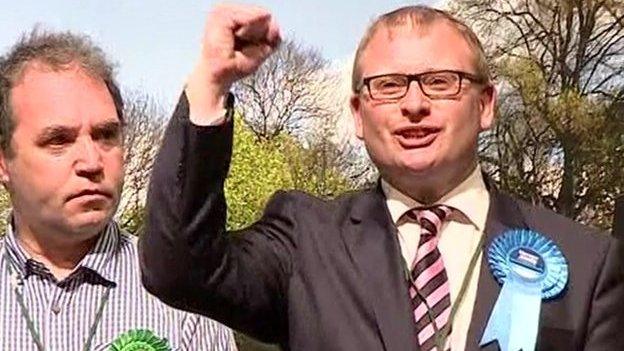
Marcus Jones doubled the Conservative Party's majority in Nuneaton with his victory in May
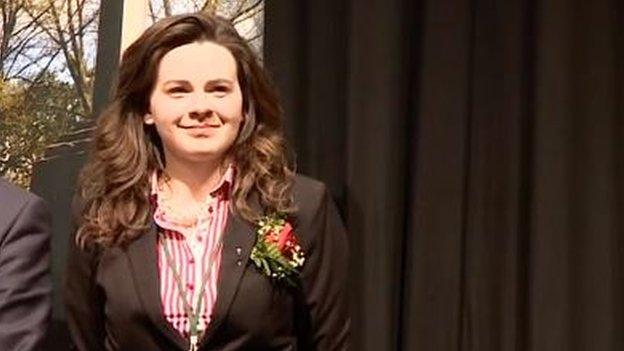
Labour candidate Vicky Fowler won 15,945 votes in May compared with the Conservatives' 20,827
Nuneaton woman is also likely to be white, aged in her mid to late 30s and working in administration.
In many ways, 34-year-old mortgage administrator Carly French could be seen as a typical resident of the Warwickshire town, situated to the north of Coventry.
The mother-of-one voted Tory in May and did not consider Miliband's Labour option.
"I just don't like them," she said.
"I don't like the look of them. I feel they are slimy and they come across as arrogant. I do not trust them."
Mrs French, who has lived in Nuneaton all her life, said her vote was influenced by friends, colleagues and relatives who also backed the Tories.
"Everyone I spoke to around the time of the election, they all seemed to be saying the same things and going Conservative," she said.
Shelley Frain, an administration worker at an estate agent in the town, has voted Labour in the past but chose Tory in May.
The 37-year-old mother-of-two said: "It was a really tough decision.
"When you looked at all the parties they all had some policies I liked but they were not amalgamated into one. I had to go with the party that had the most.
"In Nuneaton, the only one campaigning was the Tory guy so he was in my mind more.
"I thought the country is in a bit of a mess. Let's give the Conservatives more time to sort it out."

Nuneaton nuggets
Nuneaton grew rapidly following the industrial revolution and further developed with the growth of manufacturing in Coventry and Birmingham. Like Coventry, it was heavily bombed during World War Two and required a lot of post-war reconstruction.
The constituency is popular with warehousing and distribution companies because of its proximity to the M6. More than 90% of the population is white and a high proportion of them are owner-occupiers.

The decision to hold the Labour leadership debate in Nuneaton later comes after Harriet Harman said it was important the party did not "just hold hustings in our Labour heartlands".
"We have to go back and ask local people from those areas to be brutally honest about what they think of us and what they want from us," she said.
Wyn Grant, a professor of politics at the University of Warwick, said a combination of factors worked against Labour at the latest election, including its decision to field inexperienced and relatively unknown candidate Vicky Fowler against incumbent Tory Marcus Jones.
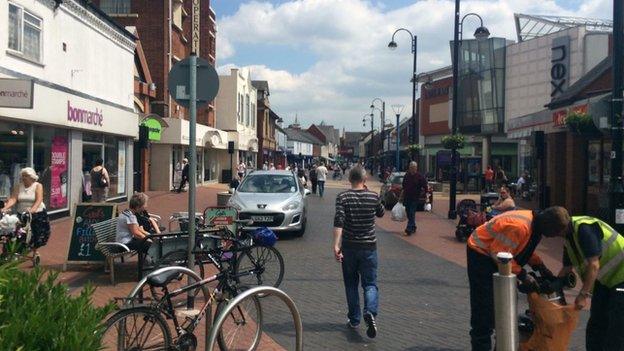
Nuneaton was once considered a Labour stronghold but the Tories have now managed to hold it in consecutive elections
He said the popularity of UKIP in Nuneaton was also a factor.
"The area is not tremendously prosperous but it's not doing too badly," he said.
"Most people are in work.
"I think a lot of people were concerned about jeopardising that and thought 'Can we take a risk with Labour?'."
However, Mr Grant said Labour's fatal mistake was not apologising for decisions it had made in the run up to the economic downturn in 2008 and said if it was going to win back Nuneaton, it needs a credible economic offer.
"Labour still has a core vote in Nuneaton, they don't want to sacrifice that," he said.
"They need a new approach. They need a bit more honesty. They need to be more open. They need to provide more detail about exactly what they are going to do and how they are going to do it.
"They need to say 'We have made mistakes in the past but we have learnt from them, we are going to be more careful in the future about how money is spent'."
- Published16 June 2015
- Published13 May 2015
- Published8 May 2015
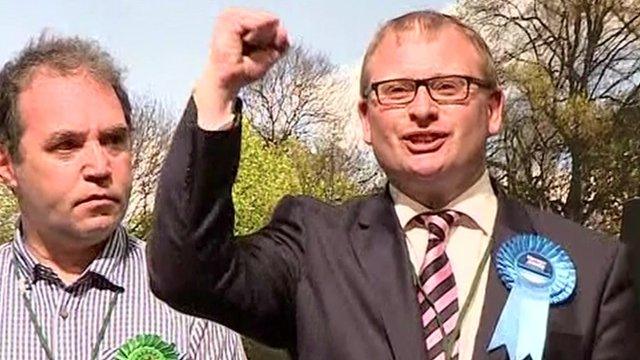
- Published8 May 2015
